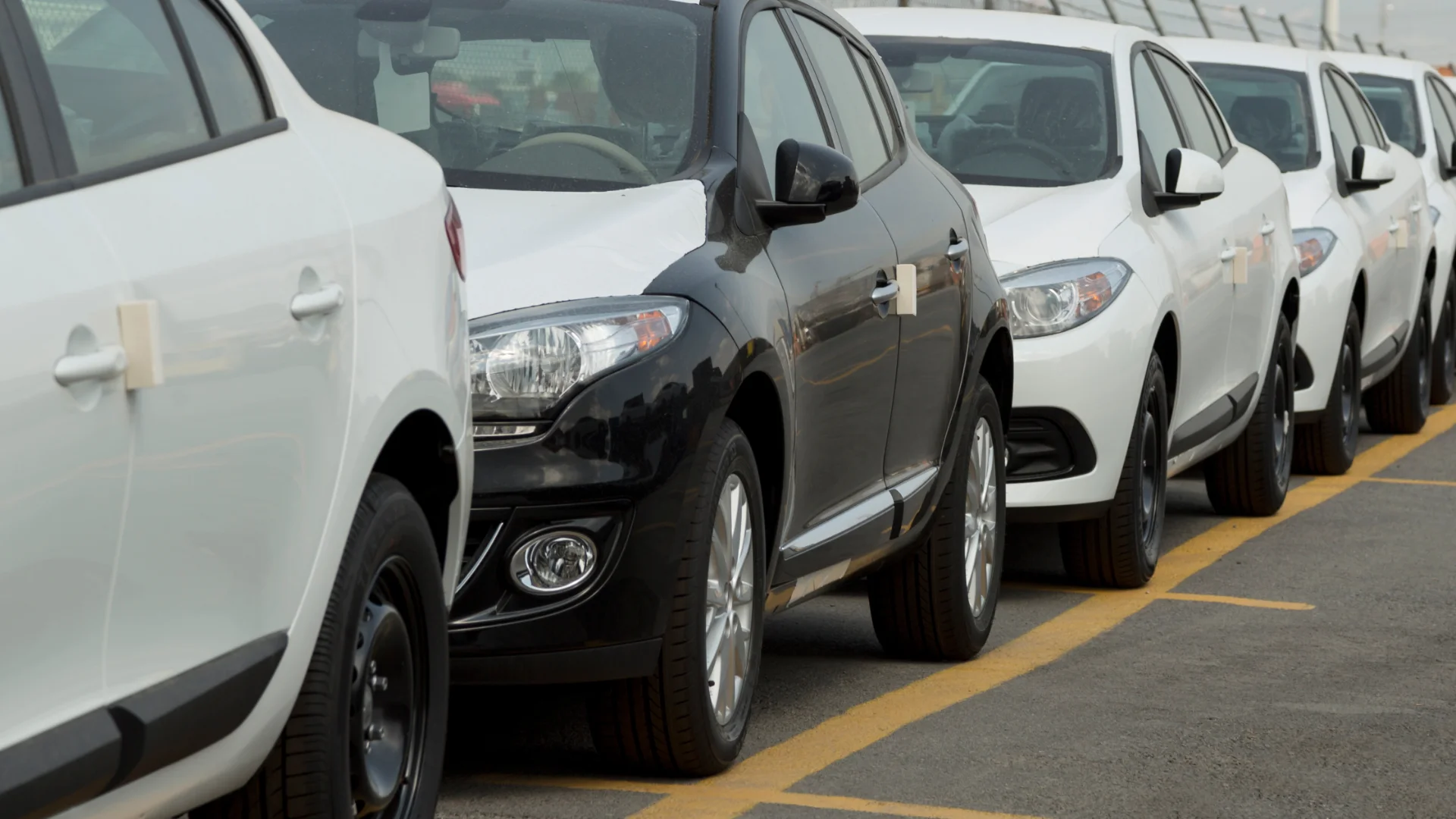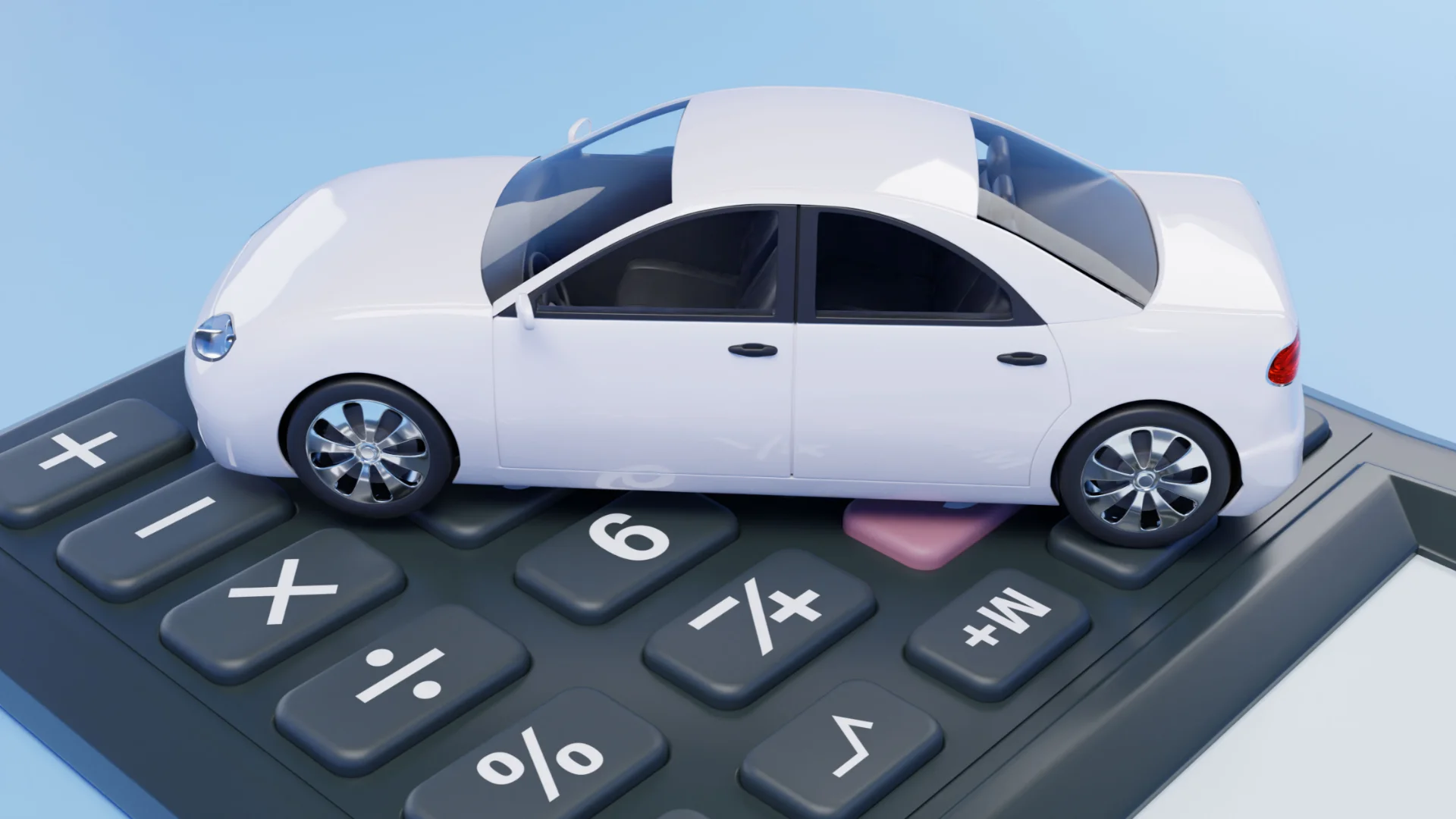
AI-Powered Marketing Playbooks: The Human Future of Car Dealerships
AI-Powered Marketing Playbooks: The Human Future of Car Dealerships
The car industry is evolving faster than ever, and the dealerships that thrive will be those that see AI not as a replacement for human intuition, but as an extension of it. We’re entering a new era one where algorithms, visuals, and automation don’t strip away individuality but amplify it. The challenge for every dealer now is learning to humanize technology while scaling smarter.
A Shift Beyond the Showroom
For decades, car sales depended on bright lights, test drives, and firm handshakes. But the showroom has moved online, and today’s buyers arrive informed, comparing dozens of vehicles with a swipe. To stand out, your brand’s digital showroom must evoke the same trust and excitement as the physical one.
That begins with visuals. According to Car Studio AI’s article on visual search and image-based discovery, buyers no longer just search they see. Instead of typing “red SUV,” they upload or scroll through similar-looking vehicles. The next generation of car shopping will be image-led, not text-driven.
AI visual search doesn’t just help buyers find cars; it transforms how dealerships display them. It makes every car searchable through shape, color, or style unlocking what traditional filters could never achieve. And when visuals are powered by consistent, AI-enhanced photography, trust increases. A buyer doesn’t feel they’re staring at a random snapshot; they feel they’re entering a curated, professional showroom.
The Rise of Smarter, Personalized Selling
Traditional marketing was once about broadcasting: put your message everywhere and hope it lands somewhere. But now, precision beats presence. As highlighted in Car Studio AI’s blog on smarter selling and automation trends, automation allows dealerships to move from mass marketing to meaningful conversations.
Imagine a customer browsing for hybrid SUVs with panoramic roofs. AI tools track their interest and follow up with tailored recommendations not spam, but value-driven insights. This is marketing that listens first, speaks second.
AI doesn’t just predict; it adapts. It learns which vehicles spark curiosity, which photos generate engagement, and when a lead is ready for human contact. You no longer guess; you know. That’s the power of automation meeting empathy a fusion that redefines what salesmanship feels like in 2025.
The Invisible Assistant Behind Every Great Deal
Automation doesn’t mean replacing people it means releasing them. As the Car Studio AI team notes in their deep dive on AI-driven marketing automation, chatbots, virtual assistants, and predictive systems can now handle routine inquiries, freeing sales teams to do what only humans can do: negotiate, empathize, and close.
When a late-night shopper messages your website asking, “Does this model have heated seats?”, AI responds instantly. If the buyer shows serious intent, it flags your team to follow up in the morning. This blend of machine precision and human warmth builds a rhythm that keeps leads alive without burning out your staff.
And the benefits extend far beyond the conversation itself. Predictive analytics reveal seasonal trends, identify profitable segments, and even suggest optimal pricing. AI becomes not just a tool but a quiet strategist whispering insights before you even ask.
Visual Storytelling: Why Photos Sell Cars
People don’t just buy cars they buy how those cars make them feel. And that emotion often starts with a photo. A dull, poorly lit image can kill curiosity in seconds, while a clean, consistent, high-quality shot can invite trust instantly.
Car Studio AI’s blog on car image editing tips dives into how photo presentation shapes buyer psychology. Brightness, reflections, background clarity every detail tells a story. AI photo editors can now remove backgrounds, balance lighting, anonymize license plates, and enhance realism in seconds.
But beyond aesthetics lies something deeper: brand consistency. When every listing reflects the same tone, color palette, and professional finish, your dealership starts to feel like a brand, not just a marketplace. You don’t sell cars anymore you sell confidence.
It’s no longer enough to say “We have great cars.” You need to show it and show it fast. AI tools like Car Studio AI automate that transformation at scale, ensuring every car looks showroom-ready, even before it leaves the lot.
Building Emotional Intelligence Into Automation
Here’s where the human element matters most. The danger with automation is sameness when every campaign looks too clean, too robotic. The solution? Add personality back into the loop.
Use automation for consistency, not conformity. A good playbook keeps the dealership’s voice alive whether it’s the humor in a tagline, a local reference, or a sales manager’s tone in follow-up messages. AI can personalize communication down to an individual buyer’s taste, but it’s your storytelling that makes it resonate.
And customers notice. A templated email feels cold; a tailored one feels cared for. AI helps you scale that sense of attention without losing authenticity.
Seeing the Road Ahead: The Future of AI in Automotive
The next phase of dealership innovation will be immersive. Think augmented-reality showrooms, virtual test drives, and 360° photo tours all enhanced by AI-powered personalization. As Car Studio AI predicts in their automation and marketing outlook, the line between digital and physical experience will blur completely.
Soon, a buyer might browse a car online, explore it in 3D, and see real-time financing offers tailored to their history all without filling a form. AI will predict their readiness to buy before they even realize it.
But as powerful as that sounds, it raises a critical point: AI is only as good as the people guiding it. The dealerships that win won’t just automate they’ll adapt, analyze, and evolve continuously.
The Balance of Data and Intuition
Data gives direction, but intuition gives depth. A dashboard might tell you which model performs best online, but your gut and your experience tell you why.
Modern marketing tools let you merge both worlds: analytics reveal the trends, while human observation fills in the nuance. Maybe an SUV sells better not because of features, but because your photos evoke family adventures. That’s insight you can’t automate.
The key is to use AI to surface the signals and then bring your human understanding to interpret them. That synergy creates the marketing strategies that feel intelligent and empathetic.

Reinventing Dealership Culture
When a dealership adopts AI tools, the transformation isn’t just technological it’s cultural. Teams that once relied on intuition learn to read data. Salespeople who once feared automation begin to trust it. And leadership that once measured success in units sold begins to see value in engagement, retention, and lifetime trust.
This mindset shift viewing AI not as a threat but as a teammate is what defines the future-ready dealership.
Bringing It All Together
Let’s summarize what the modern AI-powered marketing playbook looks like:
Visual Intelligence – Use image-based discovery to turn photos into searchable assets that attract attention.
Automation with Personality – Apply AI marketing automation to connect meaningfully, not mechanically.
Predictive Foresight – Use insights from AI-driven dealership analytics to anticipate needs before they’re voiced.
Visual Excellence at Scale – Enhance every image following professional car photo editing principles to convert curiosity into trust.
When these four pillars align, dealerships not only sell faster they build reputation equity that compounds over time.
10. The Human Future of AI Marketing
The irony of AI is that it brings us back to something deeply human: attention.
When algorithms handle the noise, what remains is focus on quality, empathy, and real communication.
As dealerships embrace AI to work smarter, the winning teams will be those that keep their humanity intact speaking in authentic voices, creating emotional visuals, and building relationships that last beyond the click.
The future of dealership marketing isn’t machines replacing people it’s people finally having the time to do what they do best.
From Automation to Autonomy: When AI Becomes a Silent Partner
The more AI integrates into dealership workflows, the less visible it becomes and that’s the point. You no longer have to “use” AI consciously; it simply powers the ecosystem quietly in the background.
Your visuals get enhanced before you even upload them. Your leads get sorted by interest level automatically. Your campaigns adjust spend based on engagement in real time.
In Car Studio AI’s breakdown of AI marketing automation for dealerships, they emphasize that automation should eventually feel invisible. When your team no longer talks about “running campaigns” but about “running conversations,” that’s when the system is working at its best.
AI isn’t there to replace intuition it’s there to give it space to breathe. The less time your sales manager spends juggling spreadsheets, the more time they have to call a lead, remember their story, and close the deal.
This is what real innovation looks like: quiet, almost invisible improvements that multiply impact without shouting for attention.
Visual Consistency as a Trust Currency
Let’s talk about one of the most underrated psychological levers in car sales: visual consistency.
Consistency signals professionalism, reliability, and care all key components of trust.
In Car Studio AI’s post on car photo editing techniques, they show how small adjustments aligned angles, balanced brightness, accurate color tones build subconscious confidence in the buyer’s mind.
Think about walking into two showrooms. In one, every car looks perfectly lit, clean, and evenly displayed. In the other, the photos are inconsistent some dark, some cropped badly. You know which one you’d trust more.
AI ensures that your visual identity stays coherent across platforms whether a customer finds your listing on Facebook Marketplace, AutoTrader, or your own website. That cohesion translates to brand memory.
When a buyer sees your visuals, they think, “I’ve seen this dealer before they’re professional.” That thought alone can close a sale.
AI, Data, and the Art of Listening
AI thrives on data, but the most advanced dealerships treat data as more than numbers they see it as a conversation. Every click, scroll, and pause on a page tells a story.
The Car Studio AI team’s article on smarter selling explains how machine learning can read those subtle buyer signals:
who’s browsing versus who’s buying, who’s price-sensitive versus brand-loyal.
When you analyze these signals not to manipulate but to understand, you evolve from selling cars to serving needs.
And that’s the future of dealership marketing: active listening at scale.
Not forcing decisions, but shaping experiences so tailored that the buyer feels understood before they’ve even spoken.
Human Touch, Digital Heart
The dealerships that will define this decade are the ones that merge human warmth with digital precision.
AI can automate responses, but it’s your tone that defines how those responses feel.
AI can segment audiences, but it’s your empathy that makes them stay.
As one of the insights from Car Studio AI’s visual search and discovery blog suggests, technology doesn’t replace emotional appeal it amplifies it. Visuals crafted through AI editing tools create emotional resonance because they look real enough to touch.
That emotional realism the way a reflection glows on the hood, or how the interior lighting feels cozy transforms a click into connection.
So while automation scales your reach, it’s authenticity that scales your impact.
Building the Future-Ready Dealership

Future-ready dealerships aren’t necessarily the biggest they’re the most adaptive.
They understand that every new innovation (from AI image enhancement to predictive analytics) is only as valuable as the people using it.
They invest in training, not just tools. They measure long-term trust, not just quarterly conversions.
Here’s what that looks like in practice:
Adopt visual search early. It’s how the next generation of buyers will browse cars.
Automate repetitive processes. Free your team to focus on relationships.
Personalize without overstepping. Transparency builds comfort.
Keep refining your visuals. Every new model deserves the same attention to detail as a flagship.
Stay curious. AI evolves monthly make experimentation part of your culture.
In the Car Studio AI marketing automation roadmap, they describe dealerships that grow not by working harder, but by learning faster. That’s the real competitive edge.
Lessons from the Hybrid Era
Let’s pause for reflection.
This hybrid era half machine, half human isn’t about one winning over the other. It’s about collaboration.
AI doesn’t dream. It doesn’t improvise. It doesn’t understand why a buyer might prefer the smell of leather seats or the hum of an electric motor. But humans do.
Your job as a dealership isn’t to outsmart AI; it’s to partner with it.
Let the system handle the science, and you master the art.
Because no algorithm can replicate the human excitement of saying,
“I think this is the car for you.”
That’s your edge and always will be.
The New Definition of “Luxury”
In the past, luxury in car sales meant marble floors and espresso bars.
Today, it means time.
Buyers value smooth experiences more than fancy decor. They want clear photos, fast answers, and genuine transparency. AI gives them that luxury instant, effortless interaction powered by invisible intelligence.
And when your team steps in, they’re not chasing leads they’re nurturing relationships already warmed by smart automation.
It’s a new kind of luxury: effortless efficiency wrapped in human empathy.
The Long Game: Building Trust That Compounds
Every great dealership understands that sales cycles end, but relationships don’t.
When a buyer feels respected, informed, and understood, they come back—sometimes years later.
AI helps you keep those connections alive through intelligent reminders, personalized maintenance offers, and predictive trade-in timing.
It helps you remember what customers care about.
That’s what turns one-time buyers into lifelong advocates. And it’s why AI, when used right, doesn’t just sell faster it sells smarter.
The Closing Curve: Humanity as a Strategy
Here’s the final truth: in a world obsessed with speed, humanity becomes your most valuable differentiator.
The more automation dominates, the more people crave authenticity.
Your visuals may be AI-enhanced, your chatbots predictive, your campaigns autonomous but your voice must stay unmistakably human.
As Car Studio AI’s blog on smarter selling subtly reminds us, technology succeeds when it disappears behind experience.
The dealerships that will lead the next decade won’t just adopt AI tools they’ll embody a philosophy:
Let machines handle efficiency, so humans can focus on emotion.
That’s not the future it’s already happening.
Final Reflections: A Human Future Powered by AI
Let’s end where we began: transformation.
The future of automotive marketing isn’t about machines taking over it’s about rediscovering what makes us human through technology.
It’s about giving time back to creativity, empathy, and service.

If AI can edit your photos, automate your ads, and predict buyer intent, you can finally do what no algorithm can make people feel seen.
That’s what will define the next generation of dealerships:
AI-powered precision guided by human warmth.
And that, ultimately, is what Car Studio AI has been building toward a world where intelligence meets artistry, and where technology doesn’t replace the salesperson, but restores their superpower: connection.
FAQ Section
What is marketing automation in the context of car dealerships?
Marketing automation in car dealerships refers to using intelligent software systems to handle repetitive marketing tasks that once required manual effort from sending follow-up emails to scheduling social posts and nurturing leads across multiple channels.
Instead of manually tracking every inquiry or campaign, automation platforms centralize the process, allowing dealerships to engage customers consistently without overwhelming their staff. For example, when someone visits your website and views hybrid SUVs, the system can automatically tag that user, add them to a “green vehicle” segment, and start sending tailored content about fuel-efficient models or eco-driving tips.
As Car Studio AI’s article on smarter selling with automation explains, the real value lies in synchronizing every customer touchpoint website, email, SMS, and even ads so the messaging feels unified and relevant. Instead of chasing buyers one by one, dealerships can now orchestrate entire journeys with precision and empathy.
How does AI improve car sales?
AI elevates car sales by helping dealerships understand, anticipate, and act on buyer behavior with a level of accuracy that human intuition alone can’t reach. It analyzes thousands of data points from browsing patterns and ad clicks to location, price sensitivity, and even color preferences to uncover trends that guide smarter marketing and inventory decisions.
For instance, if AI detects that demand for compact crossovers is increasing in a specific region, it can automatically recommend promoting those models more aggressively. It can also personalize website experiences: visitors interested in family cars see safety-focused messaging, while sports-car enthusiasts get performance-driven visuals.
The Car Studio AI blog on AI-driven dealership marketing notes that predictive analytics and visual optimization tools help convert curiosity into commitment faster. Essentially, AI brings the art of selling into the digital era not by changing the fundamentals of persuasion, but by giving sales teams clearer signals about when and how to engage.
Can AI replace human interaction in car sales?
Absolutely not and it shouldn’t try to. While AI can manage initial communication, qualification, and routine updates, the heart of any successful sale remains human trust. Buying a car is emotional: people want reassurance, conversation, and confidence before signing a contract.
AI chatbots and virtual assistants can handle the practical side answering specs, checking availability, scheduling test drives but it’s the salesperson who reads tone, builds rapport, and senses hesitation. As highlighted in Car Studio AI’s automation trends article, AI works best as a co-pilot: handling efficiency so humans can focus on empathy.
The ideal model is hybrid. AI warms the lead, prepares context, and predicts intent; humans take over when the moment demands authenticity. It’s not “AI vs. people” it’s “AI empowering people.” And when that balance is achieved, conversion rates and customer satisfaction rise together.
What are the primary benefits of using AI in automotive marketing?
The biggest advantage of AI in automotive marketing is its ability to make every stage of the sales process more precise, efficient, and personal. Instead of guessing what works, dealerships gain clarity through data-driven insights.
AI tools can segment audiences automatically, tailor messaging in real time, and optimize ad budgets toward campaigns that actually convert. They can also enhance visuals as discussed in Car Studio AI’s guide to car image editing ensuring each vehicle photo is polished, consistent, and appealing. These subtle improvements create measurable results: higher click-through rates, longer on-page engagement, and more qualified leads.
Scalability is another major benefit. AI doesn’t tire or forget follow-ups. Whether you manage 50 vehicles or 5,000, automation keeps your marketing consistent. Ultimately, it helps dealerships compete with larger players by offering the same level of digital sophistication without the need for massive marketing teams.
How secure is AI in handling customer data?
Data protection is one of the most critical aspects of AI-driven marketing. A dealership’s customer database contains sensitive information from contact details to financing history which means any AI system must be built with privacy and compliance at its core.
Modern AI platforms follow strict encryption standards, role-based access, and anonymization practices to ensure that customer data remains secure. Furthermore, regulatory frameworks such as GDPR in Europe and KVKK in Turkey set clear expectations on consent, transparency, and storage duration.
As Car Studio AI emphasizes in their marketing automation coverage, ethical AI isn’t optional; it’s a trust contract between the dealership and its audience. The goal isn’t just to protect data it’s to protect relationships. Dealers who are transparent about how AI is used earn something priceless: buyer confidence in an era where trust is the new currency.
